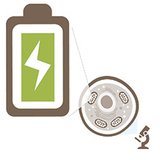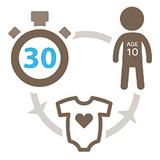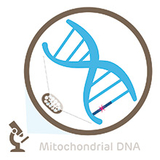Facts about Mitochondria
What are mitochondria and what do they do?

- Mitochondria function as batteries that produce more than 90% of the energy in your body’s cells.
- Mitochondria are really important in high-energy demanding organs such as your heart, liver, muscles and brain.
- 40% of each heart muscle cell and 25% of each liver cell are made up of mitochondria.
About mitochondrial disorder

- Every 30 minutes, a child is born who will develop a mitochondrial disorder or disease by age 10.
- Mitochondrial disease affects at least 1 in every 4,300 people globally.
- When mitochondria fail, less and less energy is generated within cells. This can lead to cell damage or disease.
- Mitochondrial disease is a chronic, genetic disorder that occurs when mitochondria fails to produce enough energy for that cell or organ to function.
Mitochondrial dysfunction: the search for a cure

- Physicians and researchers have only known about mitochondrial disease for about 30 years.
- The most important next steps in helping people with mitochondrial disorders are developing better tests and individualized treatments.
- Children's Hospital of Philadelphia (CHOP) is determined to lead the way in making sure no child suffers in the dark from mitochondrial dysfunction.
Support Our Next Breakthrough
With your help, we can continue making advances that will deliver the best possible outcomes for children and adults with mitochondrial diseases.
Donate Today
Contact the Mitochondrial Medicine Program
Appointments and referrals